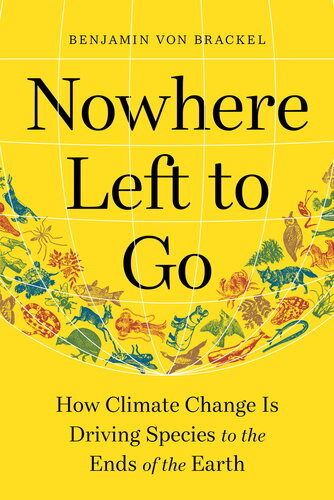

Most ebook files are in PDF format, so you can easily read them using various software such as Foxit Reader or directly on the Google Chrome browser.
Some ebook files are released by publishers in other formats such as .awz, .mobi, .epub, .fb2, etc. You may need to install specific software to read these formats on mobile/PC, such as Calibre.
Please read the tutorial at this link: https://ebookbell.com/faq
We offer FREE conversion to the popular formats you request; however, this may take some time. Therefore, right after payment, please email us, and we will try to provide the service as quickly as possible.
For some exceptional file formats or broken links (if any), please refrain from opening any disputes. Instead, email us first, and we will try to assist within a maximum of 6 hours.
EbookBell Team

5.0
60 reviewsHarrowing journeys of animals and plants—fleeing skyrocketing temperatures and mega-droughts—reported from the frontlines of the greatest migration of species since the Ice Age
As humans accelerate global warming while laying waste to the environment, animals and plants must flee to the margins: on scattered nature reserves, between major highways, or among urban sprawl. And when even these places become too hot and inhospitable, wildlife is left with only one path to survival: an often-formidable journey toward the poles as they race to find a new home in a warming world. Tropical zones lose their inhabitants, beavers settle in Alaska, and gigantic shoals of fish disappear—just to reappear along foreign coastlines.
Award-winning environmental journalist Benjamin von Brackel traces these awe-inspiring journeys and celebrates the remarkable resilience of species around the world. But the lengths these plants and animals must go to avoid extinction are as alarming as they are inspirational: Sea animals—like fish—move on average 45 miles a decade to cooler regions, while land animals—like beavers and butterflies—move 11 miles. As even the poles of the Earth heat up, we’re left with a stark and irreversible choice: Halt the climate emergency now, or face a massive die-off of species, who are increasingly left with nowhere else to go.